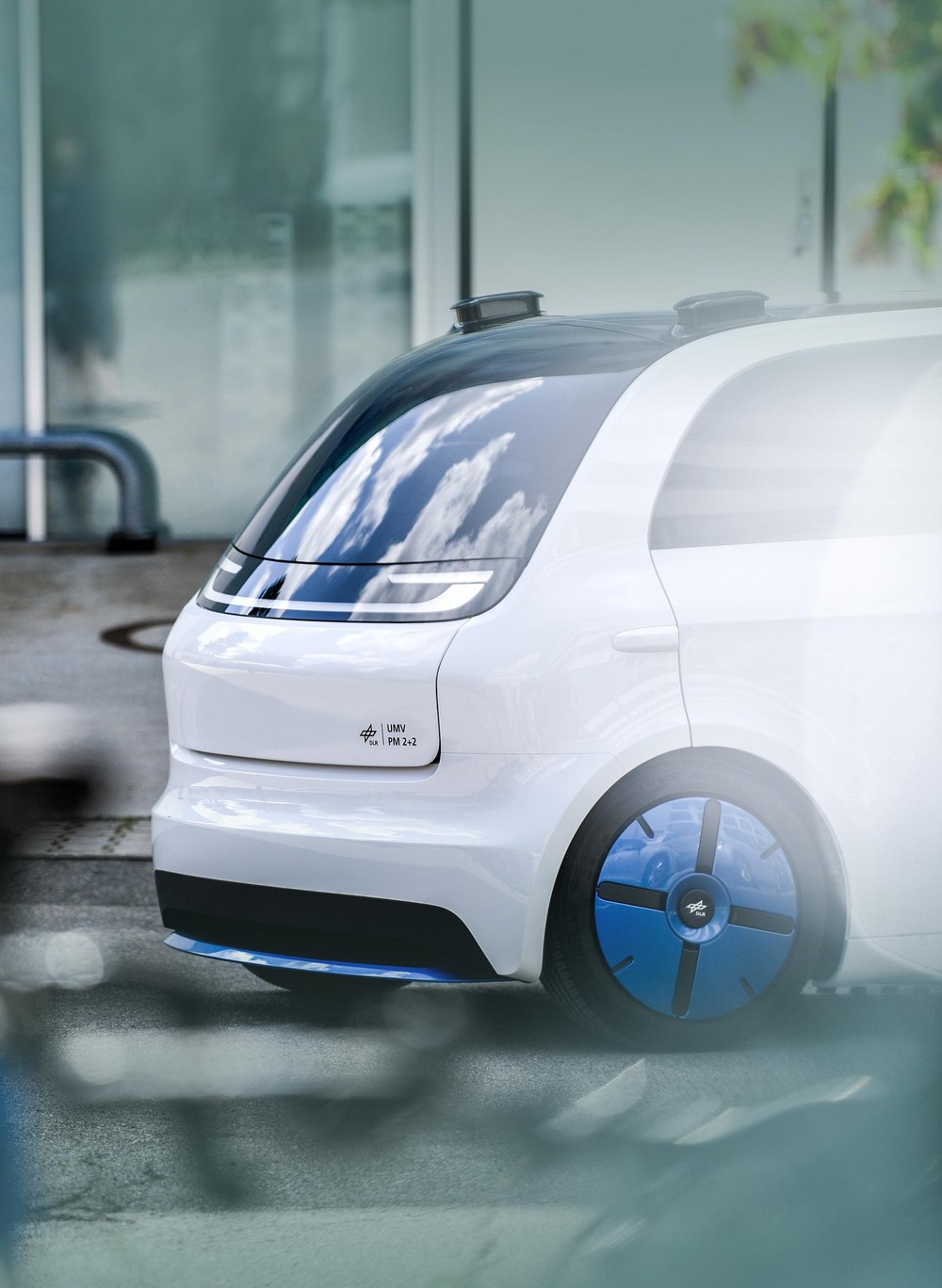DLRmagazine 163 – Metropolitan Transformer
More topics in the DLRmagazine 163 are "Go with the floe" and "Night flight at the end of the world"...

The DLRmagazine's fourth issue of 2019 has been published. The topics in issue 163 range from space to Earth, and span from the north to the South Pole. The cover image features the Urban Modular Vehicle – a project of DLR's transportation research.
The urban car of tomorrow must meet three requirements: it should be be clean, safe and autonomous. According to DLR researchers, we will drive intelligent electric modular vehicles that come in variants ranging from small cars to delivery vans. The car with which we will be travelling individually in the future will be rethought. In the meantime, the Polarstern research vessel is moving in a completely different direction. The research vessel is drifting frozen in sea ice through the Arctic Ocean as teams from 19 countries head for the epicentre of climate change. On board is a DLR antenna for receiving satellite signals. The data it collects will be used for research into better positioning and navigation services. Read more about the largest expedition in the history of Arctic research and about DLR's 'passenger' on board in the article 'Go with the floe'. The DLR research aircraft, HALO, was on its way to the other end of the world. From Argentina, it investigated the air above the South Polar region in order to better understand the chemical and physical processes at play in the atmosphere. The DLRmagazine reports on this 'Night flight at the end of the world'.
Finally, we honour two extraordinary personalities. With the help of Andrea Wulf, one of Alexander von Humboldt's biographers, we immerse ourselves in his cosmos and celebrate the 250th birthday of the explorer, environmentalist and communicator. We also remember a more recent explorer, Sigmund Jähn, the first German to go to space. The cosmonaut aviator, a colleague held in high regard and with great affection not just by his fellow astronauts, passed away on 21 September 2019.
As always, we feature many exciting research projects and include interesting recommendations for your time of leisure. Enjoy reading!
